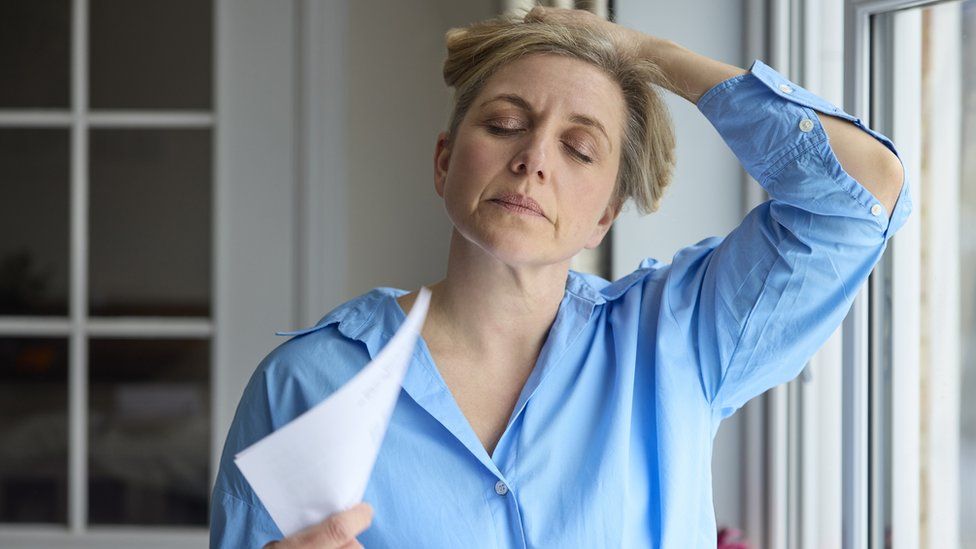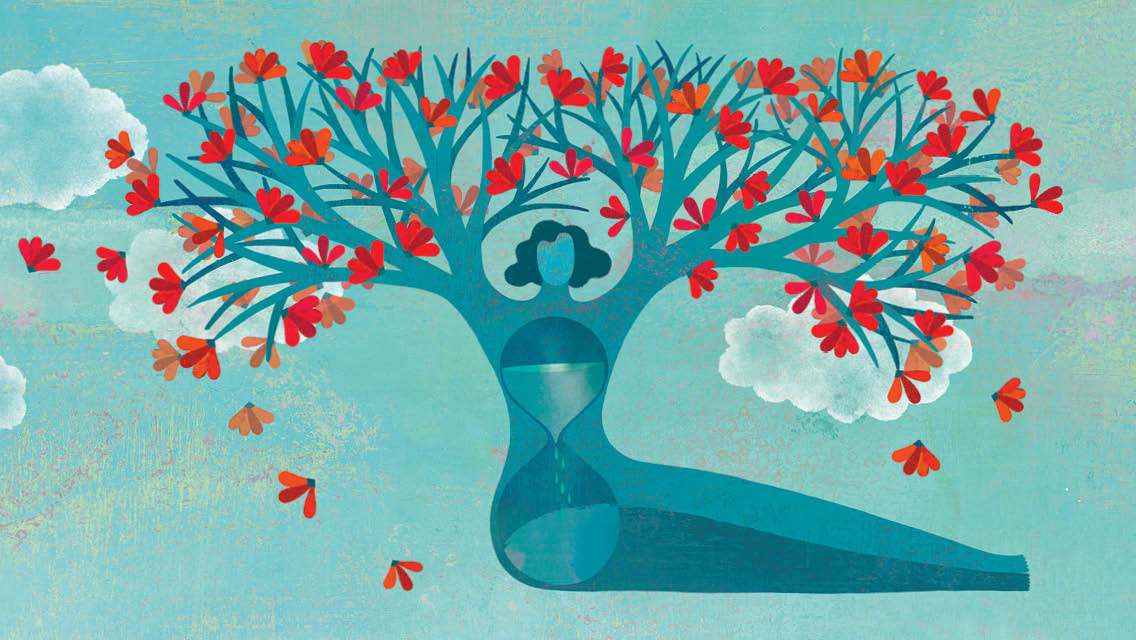Perimenopause and Supplements
Can supplements help women through perimenopause?
These pills and creams claim to help with hot flashes, bone loss, and other symptoms of the transitional phase before menopause—but do they? We asked experts.
Perimenopause is having a moment. Beyond traditional menopause treatments, there’s increasingly a bevy of over-the-counter pills and creams designed to appeal to people who haven’t hit menopause yet.
This transitional phase before menopause begins for most people in their 40s and often lasts for several years. During perimenopause, hormone changes can trigger bone loss and dozens of uncomfortable symptoms such as hot flashes, sleep issues, and mood changes.
While hormone therapy and other prescription drugs can help with some of these symptoms, many people look for alternatives. “That’s where things like supplements, non-medical products come into play,” says Mary Jane Minkin, a gynecologist and clinical professor at Yale School of Medicine.:max_bytes(150000):strip_icc()/menopause-definitions-4588759_final-8687dbdd6c5e4fa4859045bc34a7ae8d.png)
But Minkin and other doctors who treat perimenopausal symptoms say that the science on many products is murky. “Most of these things should be treated with a fair degree of skepticism,” says Nanette Santoro, a professor and chair of obstetrics and gynecology at the University of Colorado School of Medicine.
Here’s what’s known about perimenopause supplements, as well as what experts suggest for symptom relief.
What is perimenopause—and what’s in these supplements?
During perimenopause, the ovaries produce less of the female hormones estrogen and progesterone and levels rise and fall less predictably than they once did, causing irregular periods. Menopause, meanwhile, is defined as going a year without a period.
Though perimenopause and menopause are two distinct stages, the terms are often used interchangeably—likely even on some supplement packaging, Santoro says.
Products claiming to help with perimenopause symptoms often contain a mix of ingredients, including vitamin B (for energy, mood, and more), vitamin D (for bone health) and minerals like zinc (for healthy skin and nails).
You can also find herbs like maca and the popular black cohosh, both purported to tackle multiple symptoms, as well as phytoestrogens, compounds from plants such as soy and red clover that are similar in structure and function to human estrogen.:max_bytes(150000):strip_icc()/Is-this-perimenopause-3522477_V2-9b989a2eda1b42ef84effb0dcfa69558.png)
Do perimenopause supplements work?
Experts say there’s simply not enough evidence that many of these ingredients can improve side effects. Some haven’t been studied much. And for those that have been studied more, results often are inconsistent.
For instance, reviews of the scientific literature in 2012 and 2016 found that ingesting black cohosh extract didn’t significantly reduce hot flashes more than a placebo. But a review from 2017 concluded the opposite.
Minkin says that supplement studies often fall far below the gold standard for this type of research: large, randomized, double-blind placebo controlled trials that follow people over time.:max_bytes(150000):strip_icc()/menopause-supplements-5190465_FINAL-da21cc4f990941ce9d01fa1a902cdf2a.jpg)
Further complicating efforts to gather reliable data, Minkin says, is the fact that growing, extraction, and production processes for many ingredients vary.
Take soy, sometimes marketed as a treatment for hot flashes. In 2023, the Menopause Society concluded that it was difficult to summarize the studies that had been published on soy since 2015 because they were so different. Those studies tested soy using a variety of dosages, or combined with different minerals and vitamins. They also looked at different forms of soy, such as drinks and tablets.
Ultimately, the nonprofit didn't recommend soy or any other supplements it evaluated—evening primrose capsules, wild yam cream, and more—as a treatment for hot flashes.
That said, experts say they do sometimes recommend some supplements for people going through perimenopause. Calcium supplements, for example, can promote bone health if you don’t get enough from your diet, as does vitamin D, which people produce less efficiently as they age, says Karen Adams, a clinical professor of obstetrics and gynecology at Stanford University School of Medicine.
Additionally, there’s “some evidence” that melatonin can improve sleep, Adams says, especially in older people, but those studies are small with a short duration. Experts have previously also cautioned National Geographic that melatonin should only be used on a short-term basis.
Of course, anecdotal evidence abounds, with some people swearing certain supplements have helped ease symptoms. It could be the placebo effect, experts say. For hot flash treatments, for example, studies have found more than 30 percent of people report improvements on the placebo.
Regardless, if symptoms improve and she considers the supplement safe, Minkin calls it a win. “My standard line is that’s terrific, I’m glad it’s working. Keep using it,” she says.
But how do you know that a supplement is safe? That’s another can of worms.
What to consider before using perimenopause supplements
The U.S. Food and Drug Administration doesn't approve most supplements before they hit shelves, so there’s no guarantee that a product works, won’t interact with medications, or even contains what its label suggests. “Any supplement manufacturer can claim anything,” Adams says.
A 2006 study, for example, found that three out of the 11 black cohosh products analyzed didn’t contain black cohosh but another flowering plant called Asian actaea.
When considering perimenopause supplements, look for a seal from the U.S. Pharmacopeia, Consumerlab.com, or NSF International, which test supplements to verify factors like identity and purity. You can also visit the National Center for Complementary and Integrative Health’s website to learn what the U.S. government agency has found about the safety and efficacy of certain supplements.
Alternatives for health and symptom relief
While many doctors won’t point you to supplements, you can find other types of expert-endorsed relief.
Experts point to hormonal intervention as most effective for managing common perimenopause symptoms. Some doctors prefer hormone therapy—a pill, patch, or other product containing estrogen or a mix of estrogen and progesterone, Minkin says, while others won’t always recommend it since estrogen production in people who haven’t hit menopause yet can still at times be high. Hormonal birth control is another option in those cases.
If you prefer to skip hormonal treatment, however, or aren’t a good candidate for it—people with a history of unprovoked blood clots or breast or other estrogen-sensitive cancers, for example—you can also find nonhormonal prescription medications.
Certain mind-body techniques can help too.
To ease hot flashes, the Menopause Society recommends two: hypnotherapy, which involves sessions of deep relaxation and focused attention meant to make you more suggestible, and cognitive behavioral therapy, which focuses on identifying and replacing unhelpful thought patterns.
Santoro notes that exercise is “good for everything,” though she points out that some evidence shows it may not reduce hot flashes. And following a balanced diet filled with whole and unprocessed foods can control blood sugar, ensure adequate vitamin intake, and prevent weight gain that can begin during perimenopause, Santoro says.
Above all, Minkin says, it's crucial to consult a knowledgeable healthcare provider who can help you navigate the options—including supplements.
“I always encourage patients to go to reliable sources,” she adds, “and not base decisions on what a movie star says.”
Source
https://www.nationalgeographic.com/science/article/perimenopause-supplements-hormones-science
https://www.nhs.uk/conditions/menopause/
https://www.mayoclinic.org/diseases-conditions/menopause/symptoms-causes/syc-20353397
https://en.wikipedia.org/wiki/Menopause
https://my.clevelandclinic.org/health/diseases/21608-perimenopause
https://www.hopkinsmedicine.org/health/conditions-and-diseases/perimenopause





































































